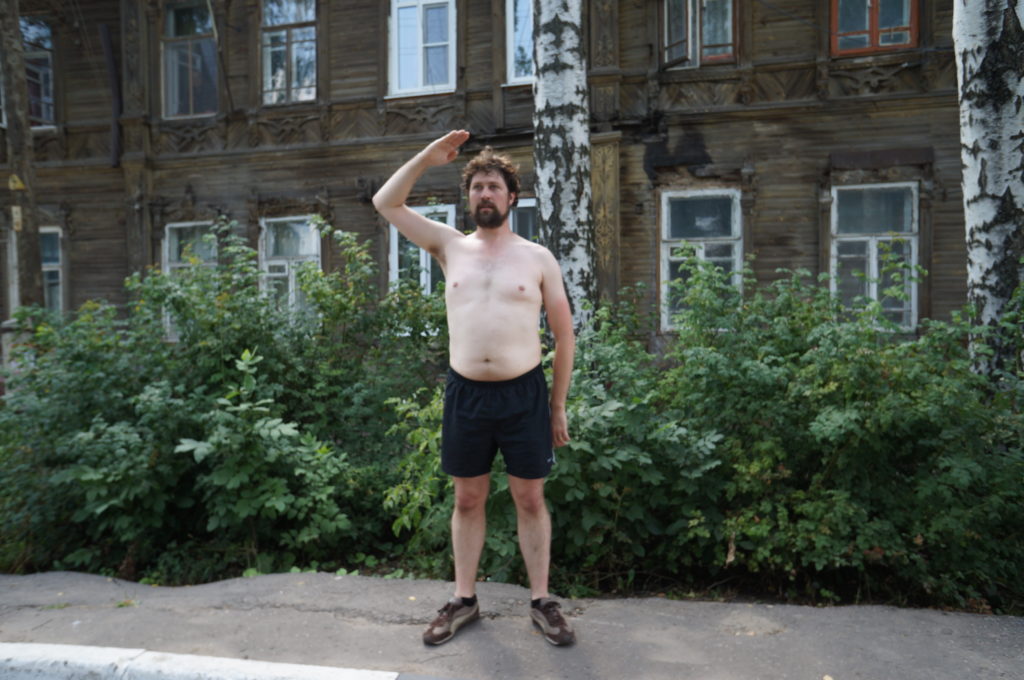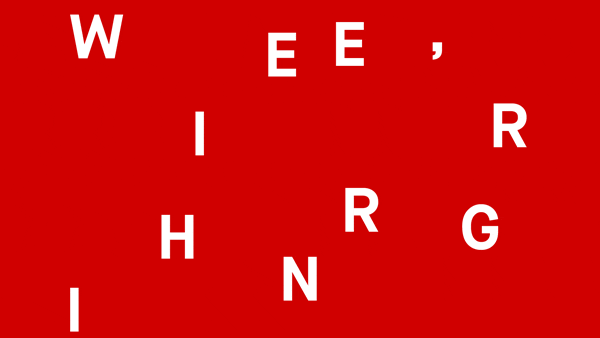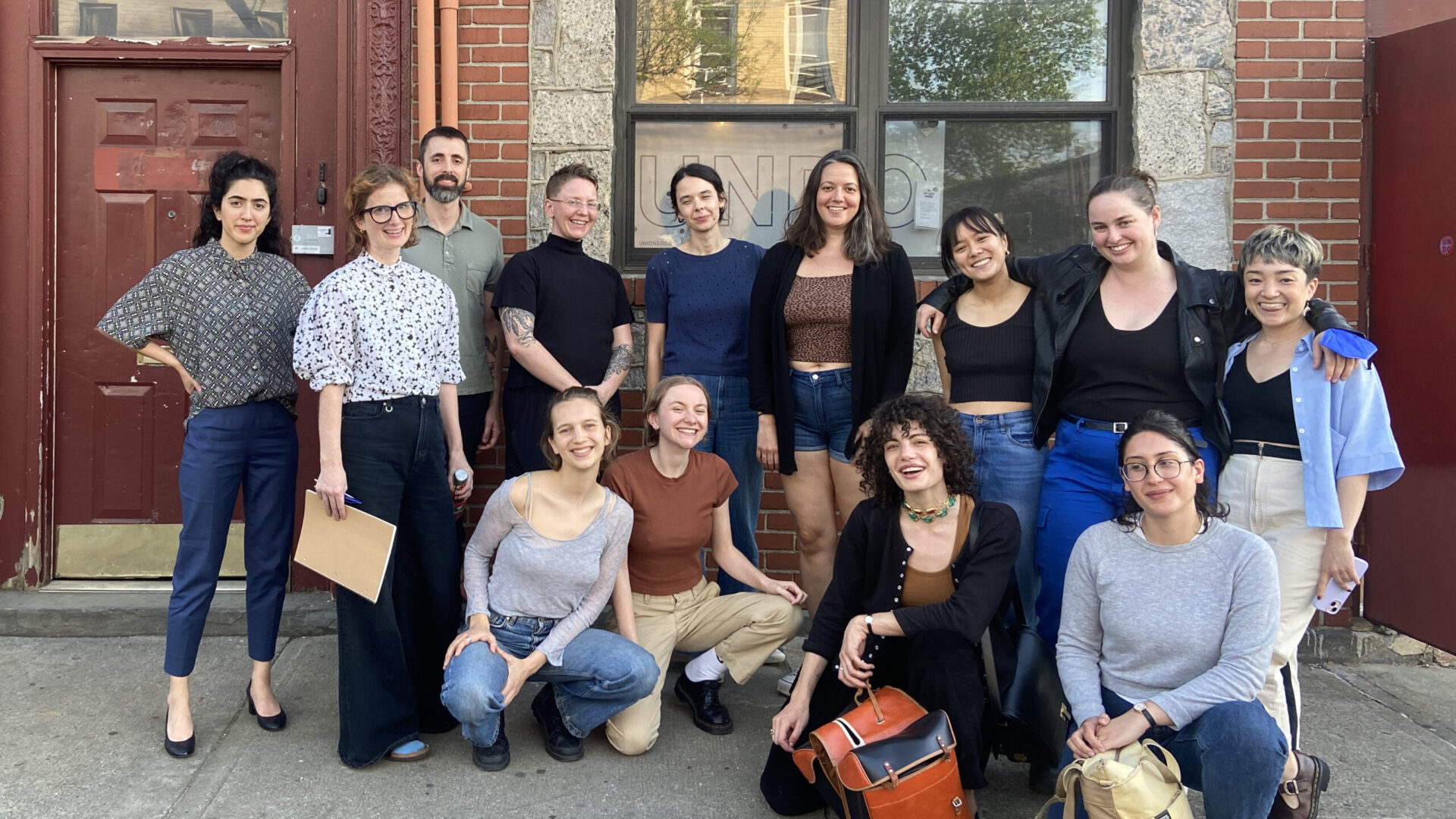How do we talk about heroism in our non-heroic time filled with fear of the other? One answer is to find those moments of extraordinary that co-exist within the ordinary. This is precisely the trajectory of Gluklya’s work…
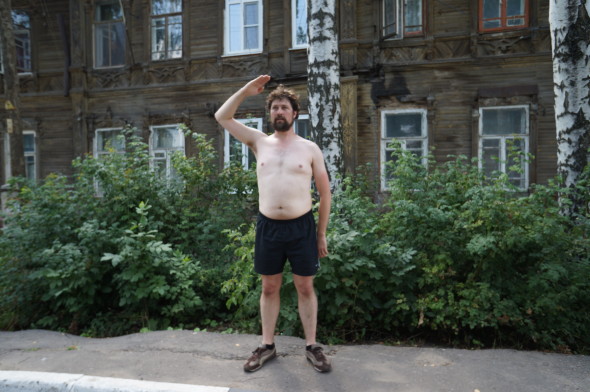
“Looking for Zoya,” by Natalya Pershina-Yakimanskaya (Gluklya) /
Russia/ 2014/ 28 min
The film addresses the complexity of the issue of heroism in Putin’s Russia after the annexation of Crimea and invasion in East Ukraine in 2014. It provokes the new thoughts on the subject via imaging the figure of a frustrated American professor, who are tirelessly running while “looking for” WWII Russian hero, Zoya Kosmodemyanskay. He appears simultaneously longing for the luck of ritual, heroic act and sexuality, while interacting, along with Chto Delat school’s students, with locals in Russian town Tambov, by the monument to Zoya.
“The method of “becoming Zoya” became the subject of a collective performance, where the participants were invited to find within themselves the core of unity in relation to the main task of the artist: overcoming ourselves for the sake of something bigger, for the sake of a higher idea, but somehow starting from their weakness or fear.
It may be that a suitable phrase here would be heroism with a human face, otherwise how else can we apologize in an elegant way for our interest in the superman and heroism in an era when culture has completely abandoned those concepts for well-known historical reasons?”
Gluklya /Natalia -Pershina -Yakimanskaya
We want to look at Zoya as a lost erotic object, as a work of sculpture, as something sublime. But this image calls to us with its ecstasy, the ecstasy of militant endurance beyond the threshold of death, beyond the phallus, beyond gendered desire and its meager pleasures. Militant Zoya’s ecstasy is one of pure volition and will. “This is my death, my achievement,” she said from the scaffold (and Lidov was also protecting us when he rewrote these words as “It is happiness to die for one’s people”). I choose this extermination you would foist upon me. I will never look upon you with the pale eyes of victimhood. Nothing can be taken from the militant once she has crossed over into the territory of ecstasy. All that is left is the instrument of the will, the body, and its slow decomposition, always incomplete.
Jonathan Platt
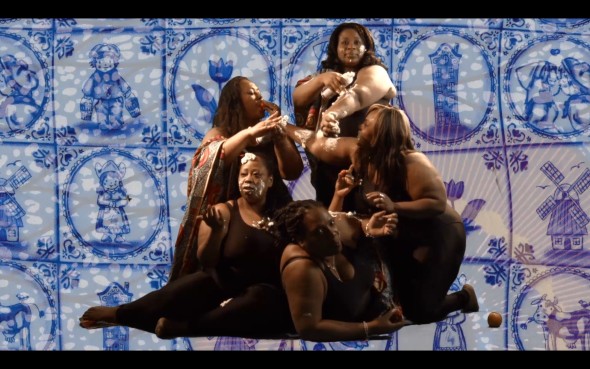
“Utopian Multi –Culti,” by Natalya Pershina-Yakimanskaya (Gluklya)/Netherlands/ 2014/ 30 min
The film results from project “Utopian Union Multi Culti” Gluklya organized in Bijlmer, a neighbourhood in Amsterdam known because of its diverse immigrant population. She invited Bijlmer inhabitants to meet and share their dreams and fears with each other. These meetings and numerous interviews that Gluklya took with them entertained the idea of utopian union in a post-utopian place: the whole neighbourhood came to life on a belief in a possibility of construction of society not upon government plans, but upon the needs of their citizens. The film consists of several pieces, or video-encounters, particularly, of those in which Gluklya visits people’s homes and ask them to describe their clothes “that have stories”. The surreal video filmed on Chroma box features people singing and realizing their dream to become a pop-singer star with the help of Utopian Union.
About the guests:
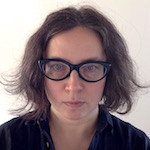
Natalya Pershina-Yakimanskaya (Gluklya). Born in Leningrad (now St. Petersburg), Russia, Natalya Pershina-Yakimanskaya (also known as Gluklya) lives and works in St. Petersburg and Amsterdam. After graduating from the Mukhina Academy of Art and Design in Leningrad, Russia, textile department in 1991, she co-founded artists’ collective The Factory of Found Clothes (FFC) with Olga Egorova (Tsaplya). FFC (1995-2012) used installations, performance, video, text and “social research” to develop the concept of “fragility,” which is understood not as “beauty,” but invisible strength, the ability to see things which can be easily destroyed by brutal reality of life. FFC recruited young female participants in developing a form of art that used vintage clothes and underwear – a dead empire’s waste found in the old St. Petersburg apartments inherited from grandparents – conceptualizing them through poetry and personal stories stitched into the items.
In her latest projects, Gluklya constructs situations that allow different social groups — illegal migrants and ballet dancers, pensioners, students, and unemployed — to meet. This method encourages processes of self-organization, giving all the participants equal status and allowing us to learn about the capacity of different minorities and marginal communities, coping with difficult life situations with the help of art. Films, such as “Utopian Multi-Culti“ and “Looking for Zoya” are resulted from the theatrical nature of those projects.
Gluklya is also a co-founder of educational and political art platform “Chto Delat,” a group’s active member since 2003. Her work has been widely exhibited – as both an independent artist and member of collectives – at the art centers and galleries around the world, as well as international art biennales including the 56th Venice Biennale of Art, main project “All the World’s Futures” (2015).
Websites:
https://www.facebook.com/movingmuseumofclothes/
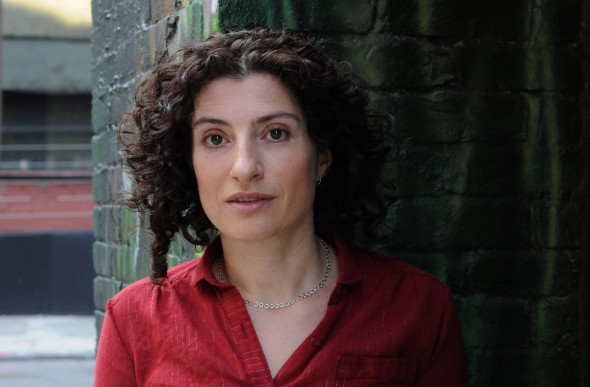 Julia Loktev is a Brooklyn-based independent film director. Her films include The Loneliest Planet, Day Night Day Night, and Moment of Impact.
Julia Loktev is a Brooklyn-based independent film director. Her films include The Loneliest Planet, Day Night Day Night, and Moment of Impact.
About the curator:
 Olga Kclosedkina is a Belarus-born, New York-based independent curator and art critic. Her exhibitions and projects include upcoming Feminism is Politics! at Pratt Institute, 2016; Lenin Icebreaker Revisited, NY Austrian Cultural Forum, 2015; Sound of Silence: Art during Dictatorship, EFA Project Space, NY, 2012; Reading Lenin with Corporations (2008-2012); Russia: Significant Other, Anna Akhmatova Museum, St. Petersburg, Russia, 2006, Post-Diasporas: Voyages and Missions at the First Moscow Biennale, Moscow, 2005. Kclosedkina is a contributor to publications such as Art Journal, Moscow Art Magazine, ArtMargins, Manifesta Journal, Modern Painters, Afterimage, and others. She is an adjunct professor at New York University, Steinhardt, Department of Media, Culture and Communication.
Olga Kclosedkina is a Belarus-born, New York-based independent curator and art critic. Her exhibitions and projects include upcoming Feminism is Politics! at Pratt Institute, 2016; Lenin Icebreaker Revisited, NY Austrian Cultural Forum, 2015; Sound of Silence: Art during Dictatorship, EFA Project Space, NY, 2012; Reading Lenin with Corporations (2008-2012); Russia: Significant Other, Anna Akhmatova Museum, St. Petersburg, Russia, 2006, Post-Diasporas: Voyages and Missions at the First Moscow Biennale, Moscow, 2005. Kclosedkina is a contributor to publications such as Art Journal, Moscow Art Magazine, ArtMargins, Manifesta Journal, Modern Painters, Afterimage, and others. She is an adjunct professor at New York University, Steinhardt, Department of Media, Culture and Communication.


